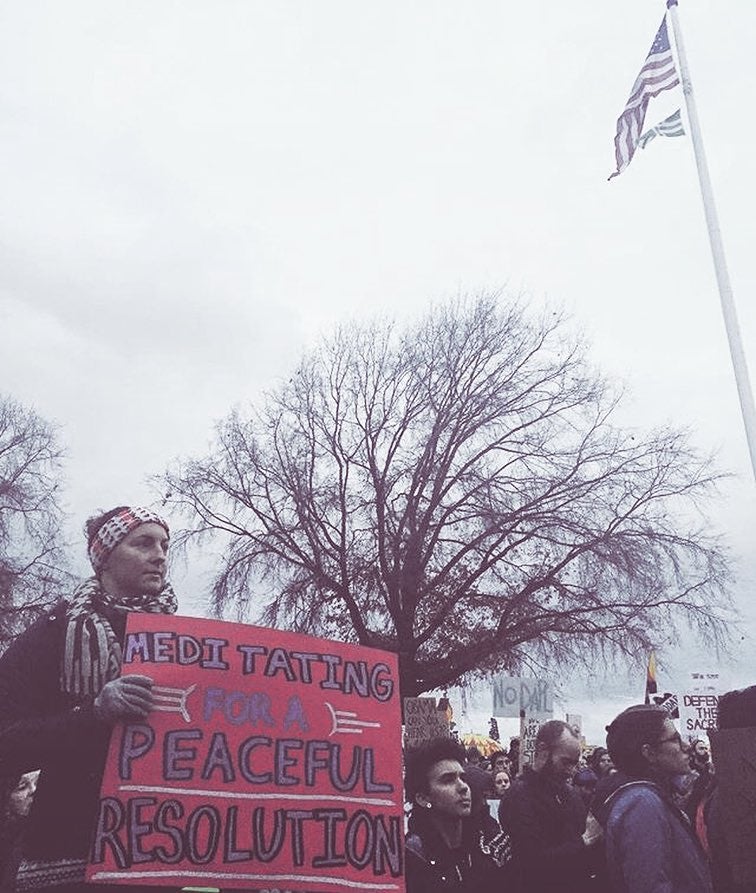Water, sovereignty, oil transport needs all clash at Standing Rock
Published 11:11 am Friday, December 2, 2016

Staff writer: Emily Williams
Water, sovereignty, oil transport needs all clash at Standing Rock
As you read this opinion piece and drink your coffee, diet Coke, hot chocolate, or beverage of preference, protestors in our country are taking a stand against the company building the Dakota Access oil pipeline. The $3.7 billion project will move 470,000 barrels of crude oil a day across four states, from Stanley, North Dakota to an oil tank farm near Patoka, Illinois.
The route of the pipeline runs next to the Standing Rock Sioux Reservation in North Dakota.
Members of the Standing Rock Sioux Tribe and their allies have been protesting the 1,100-mile pipeline for months, saying a rupture could threaten the water supply of the tribe and communities downstream if oil spilled into the Missouri River, which the pipeline will cross at the northern edge of the reservation.
Protestors are encamped in an area where they are blocking efforts to continue the construction. They’ve been ordered by the government to vacate the area by next Monday.
Musicians and celebrities have voiced their opinions to Washington, begging our president to help while he’s still in office.
Also among the protestors is my little sister, Chesley Stephens.
Last week, I watched her in a live newsfeed on Facebook at a peaceful protest at Waterfront Park in Portland, Oregon, where she lives with her husband Danny. About 3,000 people there were demanding their voices be heard with signs and peaceful protesting.
“I would be at Standing Rock in a heartbeat if I could be” she said. “They’re fighting so hard for us.”
‘‘We’ve sent supplies and talked to people who have been there. The government doesn’t think the people are strong enough to keep fighting, but we will. The camps at Standing Rock are preparing for winter, which is so rough up there. They have a long battle if they don’t stop this pipeline.”
Protestors believe it’s an issue of sovereignty rights for Native American people, an invasion of their own property, in violation of treaty rights. About 8,000 people live on the reservation.
Greenpeace environmentalists and more than 160 scientists dedicated to conservation have expressed their fears that the Missouri River might become contaminated in the event of a spill or leak near Standing Rock, jeopardizing a source of drinking and irrigation water that would affect thousands of people who depend on the river.
Dakota Access spokespersons have argued their pipeline is needed to help the U.S. attain energy independence, and it is a more reliable method of transport to refineries than by rail. The industry is heavily regulated by the federal government and the company will pay millions of dollars in taxes to the states of North Dakota, South Dakota, Iowa and Illinois.
Across America there are 2.5 million miles of oil and gas pipelines, according to a 2012 article in ProPublica. So far this year there have been 220 “significant incidents” of leaks reported, according to EcoWatch.
There are five pipelines running beneath our soil in Panola County, but so far we’ve avoided a leak that would contaminate our water supply.
In fact, we’re fortunate to live in a place where this vital resource is still pure and readily available to us.
Last week the Panolian reported after a Panola County Land Commission meeting that two Batesville businessmen are proposing to produce Blueswater, a bottled artesian water.
George Farrish Jr. and Casey Lipe plan to bottle and service containers of water to be sold and delivered.
Lipe explained he had a nearby artesian well with quality water near a building on Highway 6 East where the plant would be located.
Lipe, a blues musician, also owns Blueswood furniture, told commissioners that he and Farrish were trying, “to play off the blues,” and noting his “. . . good quality artesian water well was only 200 yards away.”
How blessed are we here in Panola to have this opportunity? An opportunity to have clean water?






